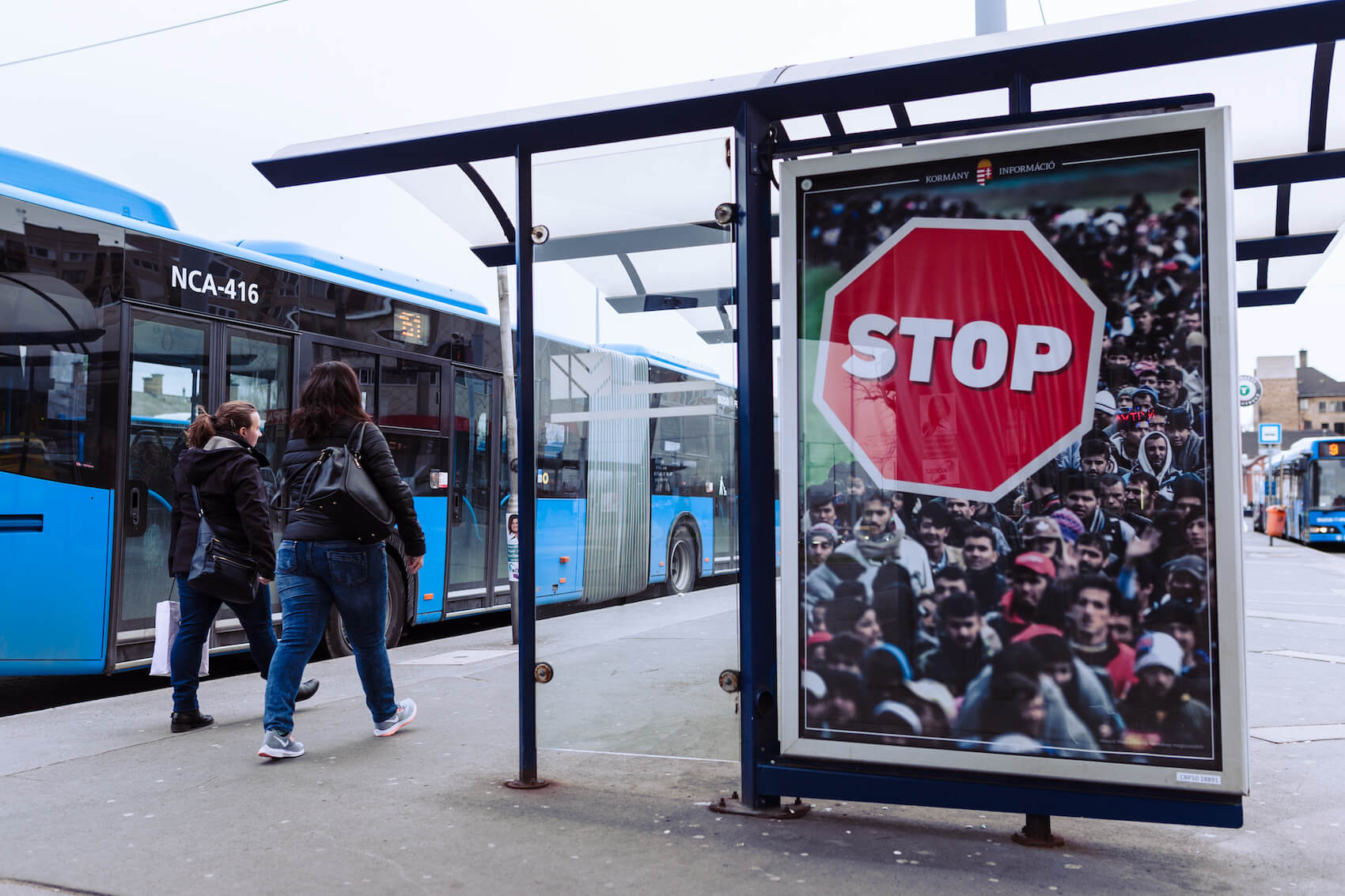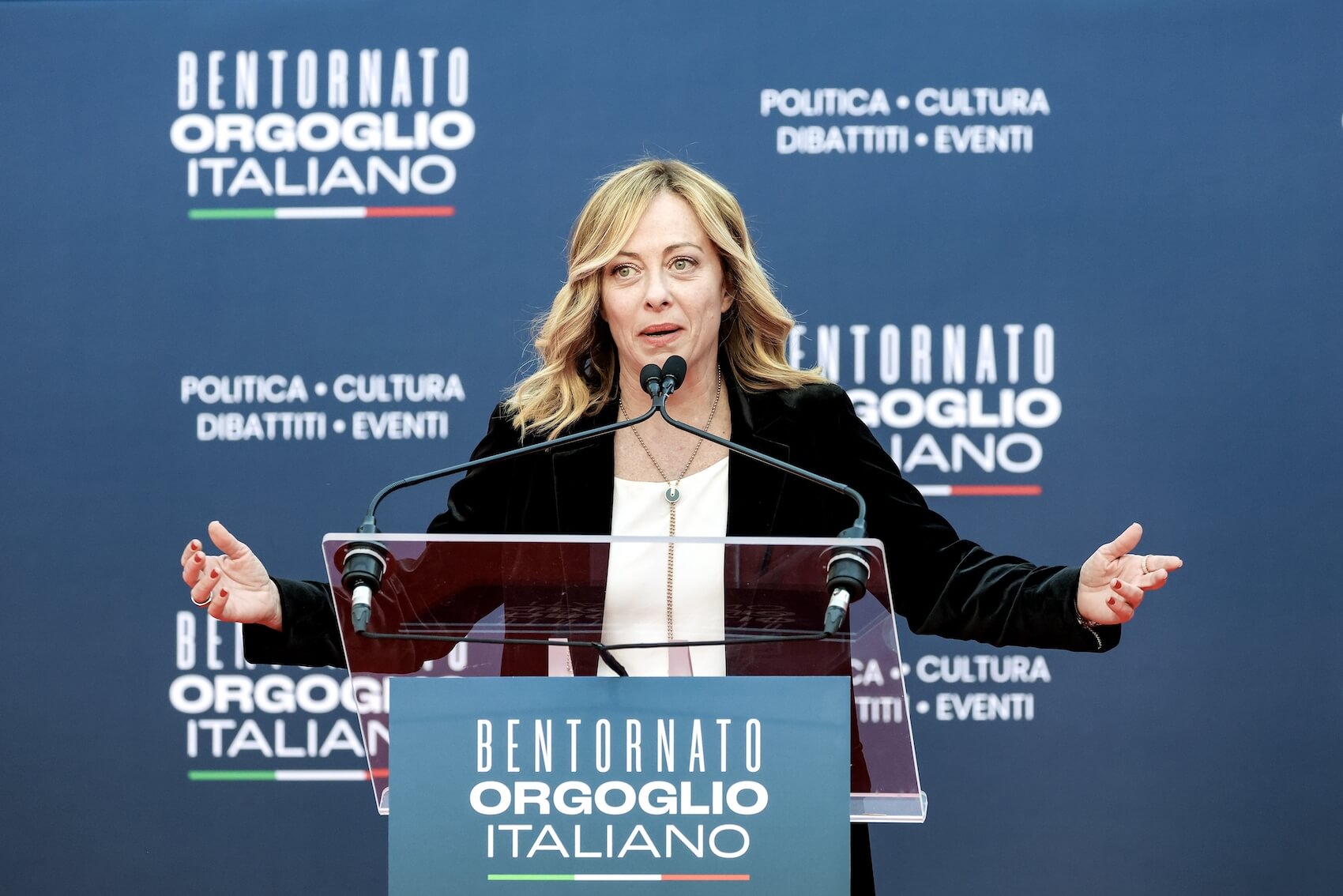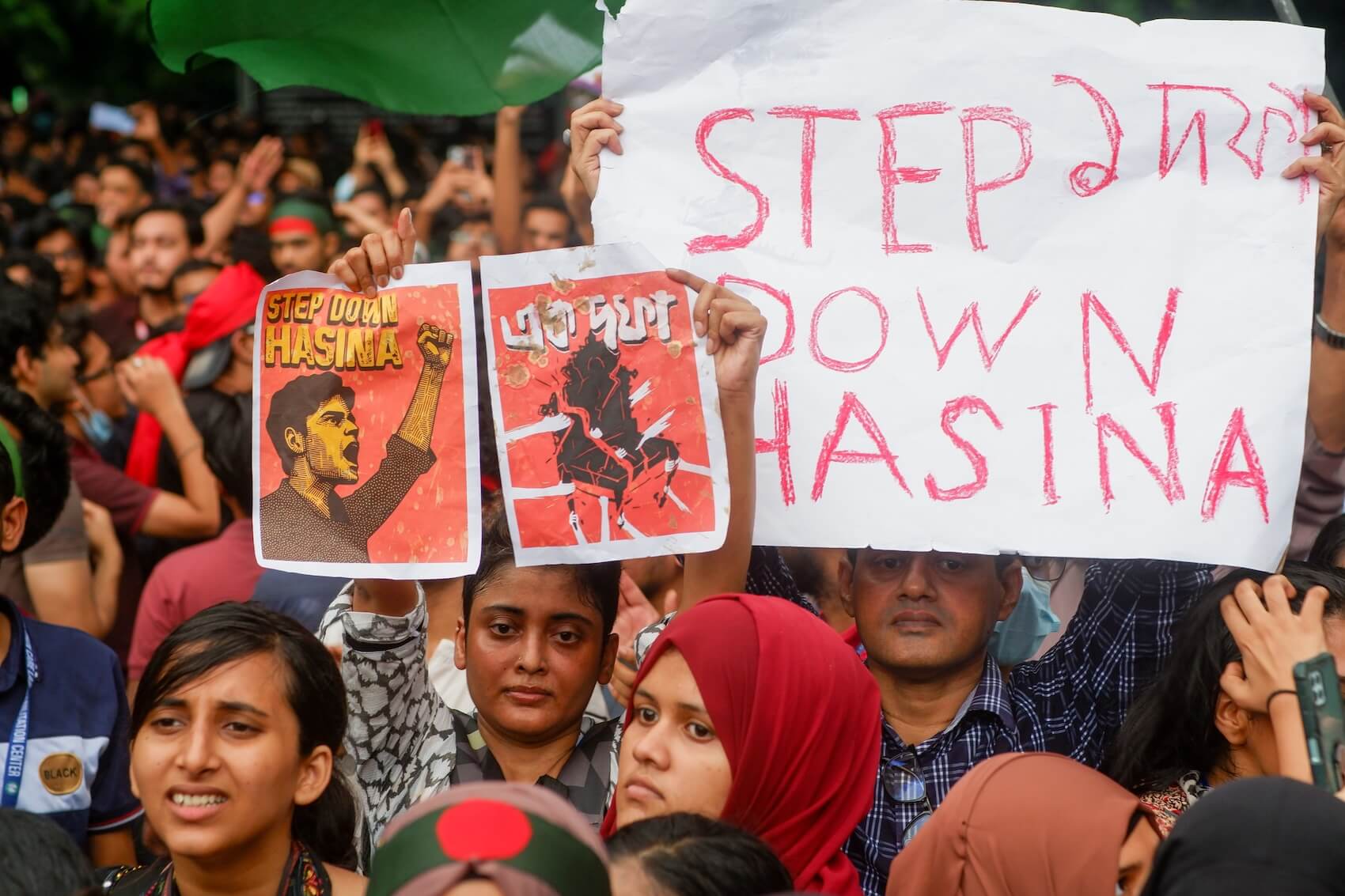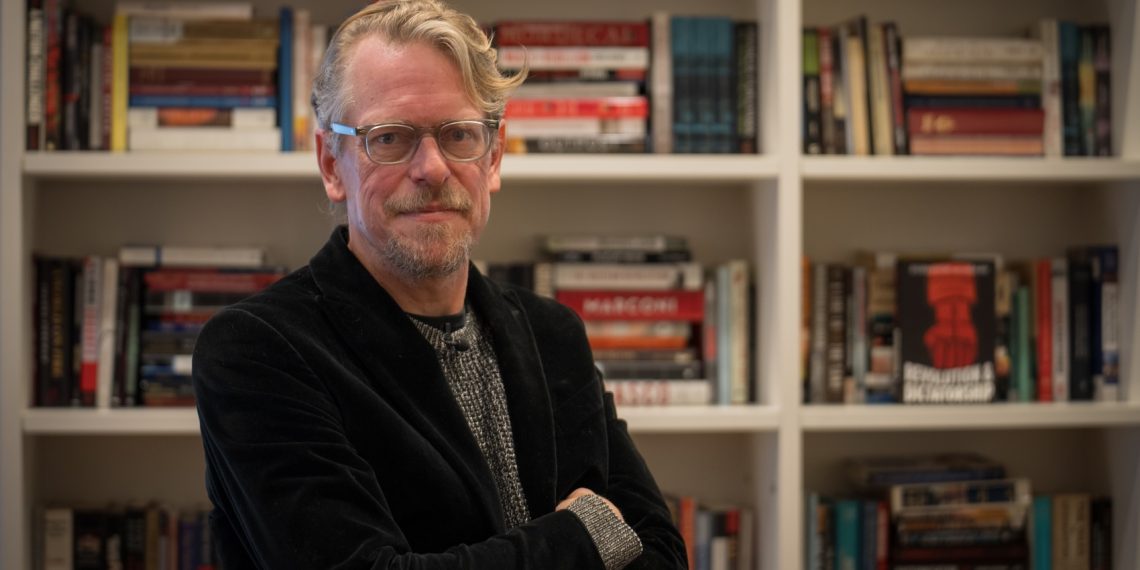In an insightful interview, Professor Lucan Ahmad Way expressed serious concerns about the durability of American institutions under Trump’s influence. “I am extremely worried about how American institutions might respond to Trump’s autocratic tendencies,” he stated, noting that subtle abuses, like politicized audits or investigations, could escape media scrutiny yet still erode democratic foundations. While US rule of law might limit overt actions, Professor Way emphasized the risk of covert pressures aimed at silencing opposition, highlighting the fragility of democratic safeguards in polarized times.
Interview by Selcuk Gultasli
In a thought-provoking interview with the European Center for Populism Studies (ECPS), Dr. Lucan Ahmad Way, Distinguished Professor of Democracy at the University of Toronto, expressed deep concerns over the resilience of American institutions in the face of potential autocratic shifts under Donald Trump’s leadership. "I am extremely worried about how American institutions might respond to Trump’s autocratic tendencies," Professor Way remarked, emphasizing the risk of subtle forms of abuse that might not attract significant media attention but could undermine the democratic fabric.
Professor Way highlighted concerns that Trump could politicize key institutions like the IRS (Internal Revenue Service), Department of Justice, or FBI to target political opponents discreetly. Although the United States’ strong rule of law may prevent extreme actions, such as the imprisonment of opposition leaders, Professor Way warned about the possibility of covert audits and investigations aimed at harassing Trump’s critics or opposition-aligned businesses.
Beyond the US, Professor Way discussed the evolving priorities of liberal democracies globally, noting a growing need for robust military investments in response to threats from authoritarian powers like Russia and China. He urged Western countries to shift focus from democracy promotion to securing the physical safety of democratic nations, particularly given the heightened risks of military conflicts in regions like Ukraine and Taiwan.
Touching on the broader global landscape, Professor Way also identified economic development as a critical factor in the stability of democracies, citing the correlation between increased wealth and democratic resilience. He underscored that while economic challenges often destabilize democracies, they also threaten authoritarian regimes, as seen recently in Bangladesh. Through this interview, Professor Way sheds light on the complex dynamics influencing the future of democracy in both the US and the wider world.
Here is the transcription of the interview with Professor Lucan A. Way with some edits.
Cultural Backlash Is the Key Driver of Populism

Professor Lucan Way, thank you very much for joining our interview series. Let me start right away with the first question. In your view, what are the main factors driving the global rise of populism and authoritarianism today? How do these factors differ across regions, and are there shared elements that make populism a global phenomenon?
Professor Lucan A. Way: I think there are a number of factors. Traditionally, people have made two main arguments. One sees populism as a result of economic discontent or neoliberalism, specifically linked to the 2008 financial crisis. The other approach tends to view populism as a result of more cultural factors, such as fear surrounding the increasing empowerment of visible minorities. For example, in the United States, experiments show that if people are reminded that visible minorities are likely to soon make up the majority of the American population, they experience a sense of "racial threat," which motivates support for racist parties.
Most studies show that, on a one-to-one basis, cultural backlash variables are more strongly associated with support for populism than economic factors. The evidence leans in favor of these cultural backlash variables in most cases, though they take different forms in different regions. In the United States, particularly in 2016, populism was historically tied to backlash against the civil rights movement and the empowerment of Black Americans. In Hungary, it has taken the form of anti-cosmopolitanism, where Viktor Orbán successfully tapped into resentment against urban elites to polarize the country and build support for Fidesz. In other cases, populism has been driven by anti-immigration sentiment. Overall, cultural factors, such as opposition to immigration, urban elites, or racial minorities, appear to unite most of these movements.
Given the decline of Western liberal hegemony and the rise of alternative power centers like China and Russia, how sustainable is the resilience of third-wave democracies in regions lacking robust civil societies or economic stability? How has the weakening of Western liberal hegemony, alongside the influence of countries like China and Russia, contributed to the persistence and even the rise of competitive authoritarian regimes globally?
Professor Lucan A. Way: What’s interesting is that the third wave of democracy was very much influenced by liberal hegemony in the 1990s, when the Soviet Union collapsed. During this brief decade-long period, the United States (US) and the European Union (EU) were essentially the only global powers, which led to a dramatic increase in the number of democracies worldwide.
However, as most readers will know, this changed in the 2000s with the rise of China as a major economic power and Russia’s increasing military aggression—first in post-Soviet Georgia and, most recently, in Ukraine. This period of liberal hegemony has now ended. Given that liberal hegemony helped fuel the rise of democracies, one might expect that its end would lead to a dramatic decline in democracies. Yet, that has not been the case. Instead, we’ve seen a sort of stability in third- or fourth-wave democracies since the 2000s, with only a slight dip in the number of democracies over the last decade in a few countries like Venezuela and Hungary. So far, at least, democracy has remained relatively robust and certainly more resilient than one might expect given the current Zeitgeist.
In cases like Hungary and Turkey, we see competitive authoritarianism taking root even in countries with democratic traditions. What strategies have leaders in these countries used to effectively erode democratic norms while maintaining electoral competition?
Professor Lucan A. Way: I think Turkey is a case where democracy was limited; it had long periods of military rule with only brief stretches of democracy before Erdogan’s rise. So, I would question the extent of Turkey’s democratic history. Hungary, on the other hand, experienced about 25 years of democracy. The main strategy, particularly relevant to the current US context, has been to dismantle the independent bureaucracy, effectively removing the civil service and politicizing the state. This is essentially the “Orbán plan,” a very common approach, which I worry could become more prominent in the United States.
In Hungary’s case, they argued that the “deep state” was controlled by communists, justifying a purge of officials. These officials were then replaced by loyalists to the ruling Fidesz party. This tactic—removing independent officials and replacing them with loyalists—seems to align with certain elements of Donald Trump’s agenda in the US, which is, I believe, a significant cause for concern.
Far-Right Ideologies and Anti-Democratic Actions Are Distinct Issues

How resilient do you believe liberal democratic institutions are to the pressures posed by populist leaders and movements? What mechanisms or strategies have been most effective in safeguarding democracy against authoritarian shifts?
Professor Lucan A. Way: Well, a few things here. I think it’s important to distinguish between the so-called far right and anti-democratic parties. These are often conflated, but they’re distinct. For instance, you may have a far-right party that is anti-immigrant or opposes rights for certain minorities, yet that doesn’t necessarily mean it fundamentally attacks democracy. These are two separate issues.
A party may be anti-immigrant or even racist without undermining core democratic institutions. For example, in Italy, Georgia Meloni’s government has been characterized by far-right views, especially concerning immigrants, yet hasn’t fundamentally attacked minorities or democratic structures. This may also be true in other cases, like France. So, it’s essential to avoid conflating opposition to minorities or immigration with opposition to democracy—they’re not necessarily the same.
In the United States, however, these elements are more closely linked; you have an anti-immigrant party that is also highly anti-democratic. Given that the US is the world’s oldest democracy, this combination is, of course, deeply concerning.
Considering recent shifts in European policies, particularly Germany’s defense initiatives and economic distancing from Russia, what do you see as the long-term implications for Europe’s role in promoting and defending democratic values globally?
Professor Lucan A. Way: I think right now Europe’s main concern needs to be security. For many decades, including myself, we didn’t fully appreciate the importance of a robust military in preserving the liberal world order. However, with Russia’s violation of the norm against invading other countries and its interference in democratic elections in the US and Europe, this is a significant concern. Right now, liberal countries outside the United States are waking up to the necessity of seriously investing in their military capabilities—not only to defend Ukraine, a democracy directly attacked by Russia, but also due to the realization that failing to defend Ukraine could have profound global implications. Without such defense, there could be a concerning increase in the frequency of countries attacking one another.
Of course, I believe the biggest concern on this front right now is the potential for China to invade Taiwan. Here, we see very direct and literal military threats against democracies, which the liberal West needs to focus on preventing. In a sense, we are beyond simply promoting democracy as seen in the 1990s; the emphasis now is much more on actively maintaining the physical security of democratic nations.
In your article, “The Resilience of Democracy’s Third Wave,” co-authored with Professor Steven Levitsky, you contend that the findings of V-Dem and Freedom House may be exaggerated and don’t entirely reflect the real state of democracy. To what degree do you think the current narrative of "democratic decline" is overstated? Do you believe the data truly indicates a global democratic backslide, or are we seeing shifts in how democracy is interpreted? Has your perspective changed in the light of Trump’s election in the U.S. and the recent successes of far-right parties in Europe?
Professor Lucan A. Way: Regarding V-Dem and Freedom House, I don’t see a reason to question the data itself, but rather the rhetoric surrounding it. Their reports often have a hyperbolic tone that doesn’t fully align with the data they present. I feel these interpretations have become exaggerated, likely aimed at attracting media attention. You’re unlikely to get calls from major outlets like The Washington Post or The New York Times with a report stating that “things are basically the same,” so there’s a tendency towards more sensational claims, like democracy being at a level comparable to the 1980s, which is demonstrably inaccurate.
Moreover, terms like "autocracy" are used quite liberally in these reports. For instance, labeling India as an autocracy feels misleading. India under Narendra Modi has engaged in concerning authoritarian practices, including suppressing opposition and targeting the Muslim population. Ahead of the last election, they even sought to freeze the accounts of the opposition Congress party. Yet, the elections themselves remain largely democratic, as shown by the BJP’s loss of majority, requiring them to form a coalition. So, calling India an autocracy overlooks the fact that its elections still hold significant power in determining leadership. It’s more accurate to view India as a competitive authoritarian system, where elections remain meaningful but are accompanied by substantial abuses of authority.
These are cases where elections remain real and effectively determine who gains and retains power, yet they are accompanied by various forms of authoritarian abuses, including attacks on the opposition. I think that’s an important distinction to make, and I do believe it’s significant, yes.
Economic Crises and Public Dissatisfaction Also Challenge Authoritarian Regimes

Given the increasingly unfavorable international environment, why has full-scale authoritarianism failed to make a comeback? What are the international and domestic roots of the resilience of competitive electoral regimes?
Professor Lucan A. Way: I have two main responses. First, the world has become significantly wealthier over the past generation. Since the 1980s, the number of high-income countries has doubled, and there’s an extremely strong correlation between wealth—excluding oil wealth—and democracy. According to the World Bank, if we exclude petro-states like Kuwait and Saudi Arabia, which derive their wealth primarily from natural resources, 95% of high-income countries today are democratic, with only Singapore and Hungary as exceptions. This correlation has held steady over time, indicating that, in the modern era, wealth contributes strongly to democratic resilience. Since the 1980s, the global increase in wealth has bolstered democratic stability, even in places where it was previously fragile, such as Romania, Portugal, and Greece. These countries are now high-income, and their economic development and robust domestic economies play a key role in preventing full democratic backsliding.
The second point is that, even among middle-income countries, it’s easy to overlook how challenging it is to establish and sustain authoritarianism. The same economic crises and widespread public dissatisfaction that threaten democracies also pose significant challenges to authoritarian regimes. For example, this was seen dramatically in Bangladesh over the summer, where deep dissatisfaction with the autocratic Prime Minister Sheikh Hasina contributed to her eventual ouster.
We, often, assume these challenges are unique to democracies, but authoritarian and competitive authoritarian regimes face similar issues in maintaining power due to general discontent with economic instability and corruption. Bangladesh is a case in point, where frustration with issues like the quota system and high unemployment intensified dissatisfaction, highlighting the limitations on the authority of an autocratic leader.
You argue there is considerable evidence that Russian President Putin’s attack on international norms could ultimately strengthen the liberal world order. Can you please explain how that could happen?
Professor Lucan A. Way: I wrote that piece shortly after Russia’s full-scale invasion in February 2022, and I think it was impressive how strongly the West united in support of Ukraine. Putin likely hoped that Europe and the United States would not respond, partly because Russia has maintained corrupt ties with members of the European elite—most notably, Gerhard Schröder, who was paid millions by Russian oil companies and essentially became completely compromised. Putin may have believed that these relationships would allow him to divide the European elite. However, the brutal nature of the invasion shocked many and pushed Western leaders into unified action.
Remarkably, this led to Europe’s significant shift away from dependence on Russian energy resources—a transformation that has been quite notable. Many of us were pleasantly surprised by this level of unity. That said, we are not yet out of the woods. There continues to be some hesitation among European powers and an insufficient recognition of the need to strengthen their militaries against the Russian threat. I also think the war is likely to continue for some time, and I wouldn’t entirely discount the possibility of divisions emerging. I think Putin certainly hopes that, especially with Trump’s election, we might see divisions in Europe, particularly along lines similar to Orban in Hungary, who has been notably pro-Russian, or Serbia’s alignment with Russia. This is a development I’m quite concerned about.
Why do some authoritarian regimes survive for decades, often despite severe crises, while others collapse quickly, even absent significant challenges? How do you explain the nexus between social revolution and authoritarian durability? One of your articles suggests that many democracies in lower-income regions remain competitive due to authoritarian weaknesses. Could you expand on the dynamics that keep democracies stable in these challenging environments?
Professor Lucan A. Way: Why do social revolutions result in stable autocracies? Well, that’s a question we explored in our book, and it largely has to do with the fact that social revolutions—like Russia in 1917 or Cuba in 1959—almost always lead to civil war or violent conflict. This conflict enables the creation of a highly unified elite who maintain cohesion because of an outside threat, fostering a siege mentality. It also allows these regimes to build a strong military and eliminate alternative power centers, leading to a weakened civil society. China is a prime example of this phenomenon: while it faces economic issues, there is no significant opposition capable of capitalizing on public discontent with the Communist Party, which helps it remain in power.
Trump Will Make Life Difficult for His Critics and Opposition-Supporting Businesses

With the election of Donald Trump as the 47th president of the US, how do you think American institutions will react to his autocratic tendencies?
Professor Lucan A. Way: I am extremely worried about how American institutions might respond to his autocratic tendencies. While I think it’s very unlikely that this will lead to the end of elections or full-scale authoritarianism, American institutions remain vulnerable to politicization. I’m particularly concerned about potential abuses, such as using the Internal Revenue Service (IRS) to audit Trump’s political rivals or the Department of Justice or FBI to investigate his enemies.
The US has a strong rule of law, so it’s unimaginable that Trump could jail high-profile opponents like Kamala Harris or Democratic leaders. However, it’s quite conceivable he could use audits or investigations to make life difficult for his critics, targeting businesses that support opposition candidates like Josh Shapiro. Recently, there was an attempt to pass a bill in the House that would allow the Secretary of the Treasury to revoke the nonprofit status of NGOs allegedly supporting "terrorism"—a vaguely defined term that could be used selectively against left-wing organizations while protecting right-wing ones.
There are many possibilities for more subtle forms of abuse that won’t necessarily be dramatic or attract major media attention. These wouldn’t involve actions as extreme as jailing political candidates or suppressing protests but could instead happen behind the scenes through tactics like targeted audits. This kind of abuse is harder to detect, especially for outsiders—it’s challenging to gauge, for instance, if the IRS is disproportionately auditing Democrats over Republicans. Such actions are easier to carry out because they’re more opaque, which is precisely why I’m deeply concerned. In fact, I think it’s incredibly likely that we will see these kinds of abuses, and I would be very surprised if they do not occur in the United States.
How do you think populism in the US and populists worldwide will be impacted by the election of Donald Trump?
Professor Lucan A. Way: I think initially, Trump’s election will certainly fuel and boost confidence among populists globally. At the same time, I want to point out that the driving force behind support for Trump may not necessarily be a fundamental shift to the right. Instead, it could be a reflection of deep anger directed at incumbents.
The silver lining, for those opposed to such populist figures, is that now, as they hold power, this anger is likely to be directed at them. It’s just hard to be an incumbent anywhere these days. Since 2013, in wealthy democracies, 15 out of 18 elections have led to incumbents being ousted. This intense anti-incumbent sentiment likely fueled the last US election.
What’s puzzling to me, honestly, is the source of this anger. Yes, there’s inflation, but inflation in the United States was 14% in the 1980s, while now it’s around 2.4%. Unemployment is very low, nearly 4%, which is close to full employment. The economy seems to be performing fairly well, so it’s somewhat perplexing. The anger and perceptions of the economy seem misaligned with the actual indicators.
And lastly, how do you explain the electoral victory of Maia Sandu despite heavy Russian influence in Moldova?
Professor Lucan A. Way: First, it was very close. There were actually two key elections—a referendum on joining the EU and Maia Sandu’s election. Both were definite nail-biters. I think Moldovans are likely quite fearful of Russian influence, especially given what’s happened to their neighbor Ukraine. Moldova also has a long tradition of anti-Russian sentiment, particularly among Moldovan and Romanian nationalists, which provided a strong basis of support for her. So, yes, that’s a piece of good news. In Georgia, however, it’s disappointing to see that the pro-Russian party appears to have used fraud to maintain power, so there’s positive news in Moldova but less so in Georgia.


